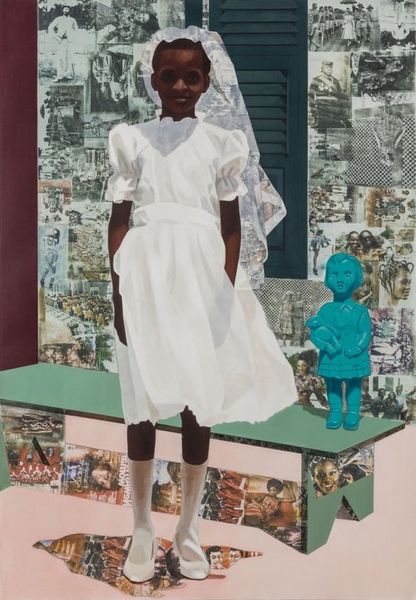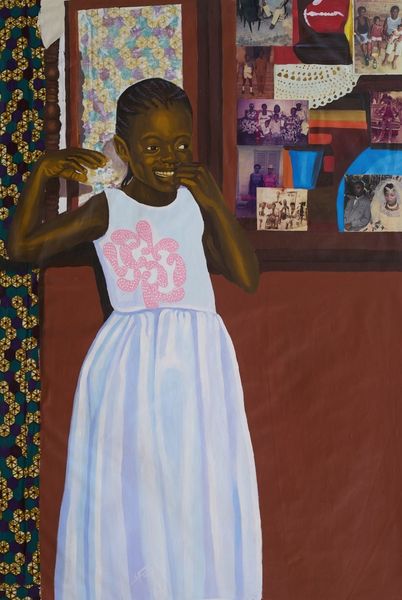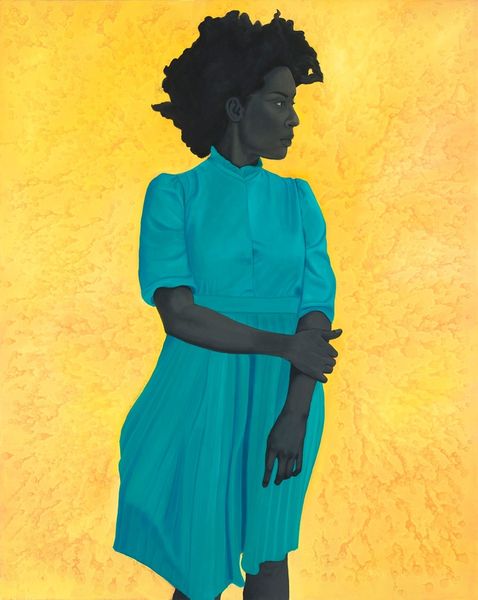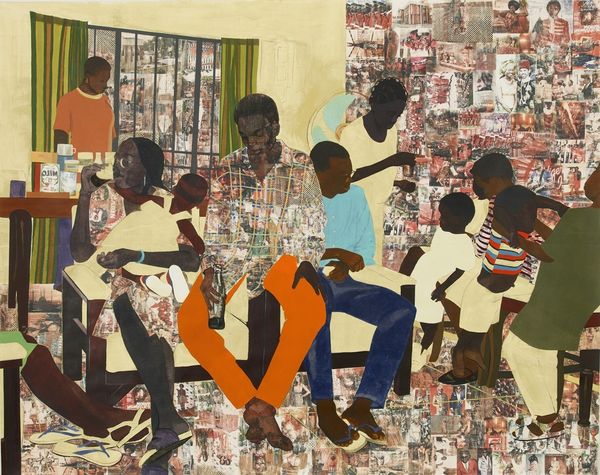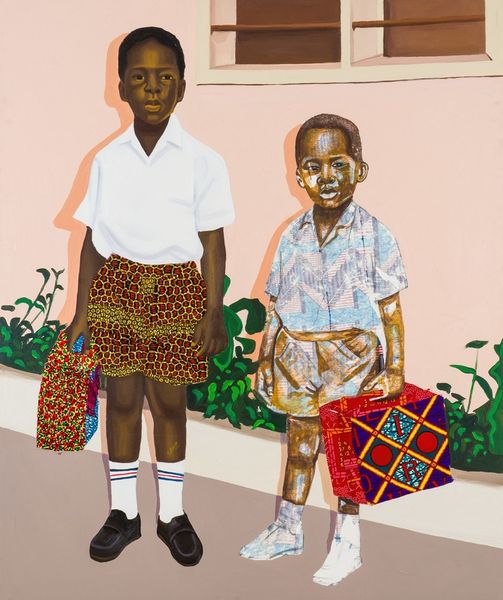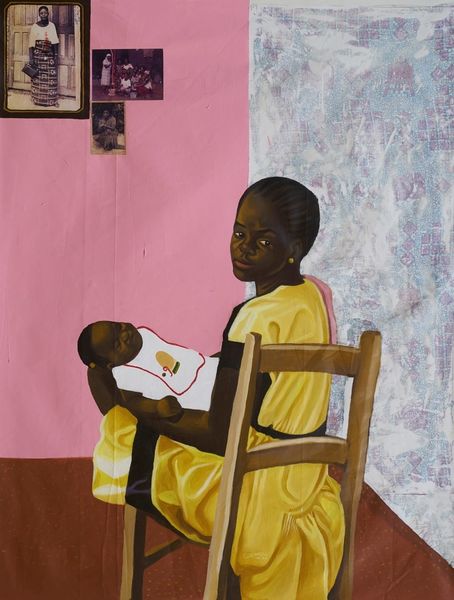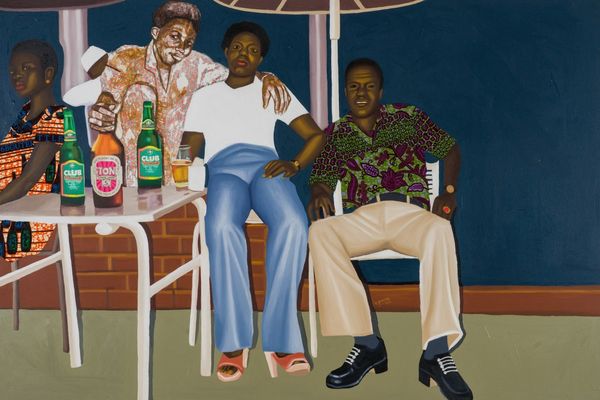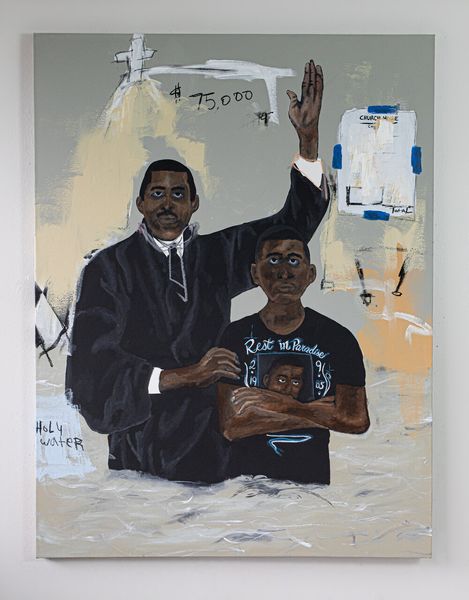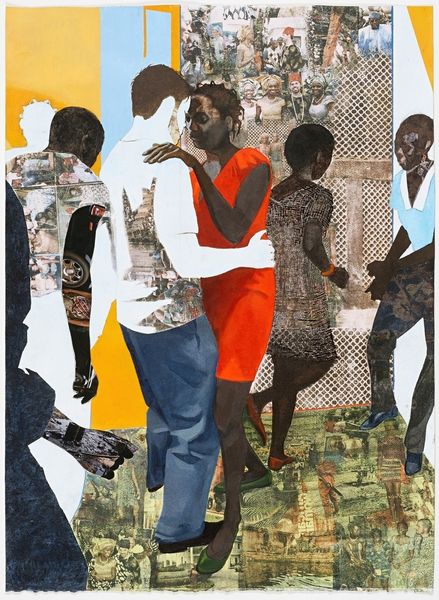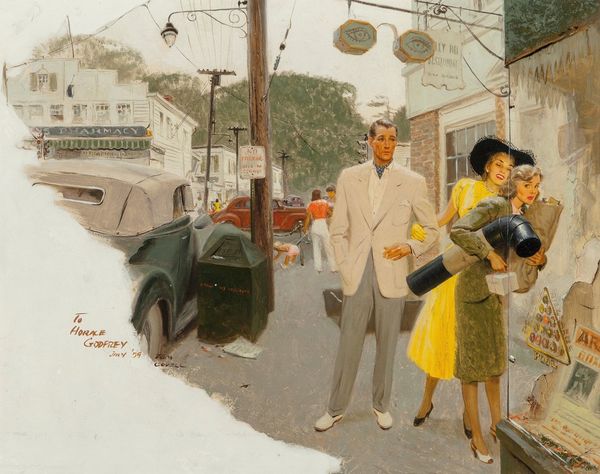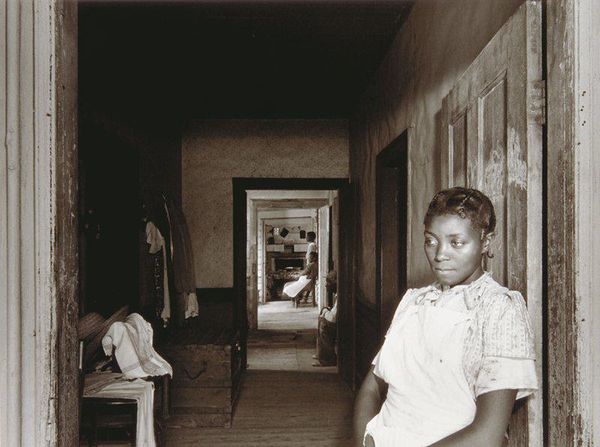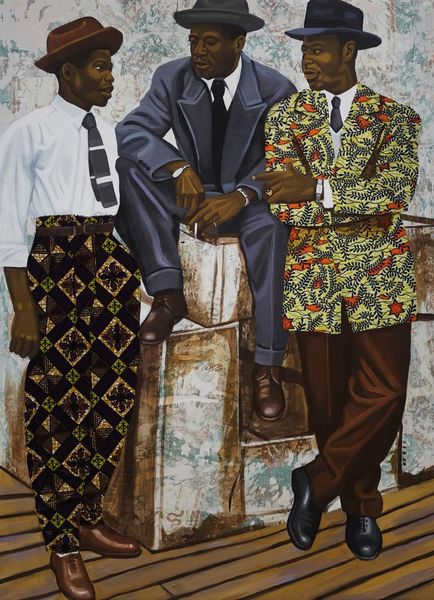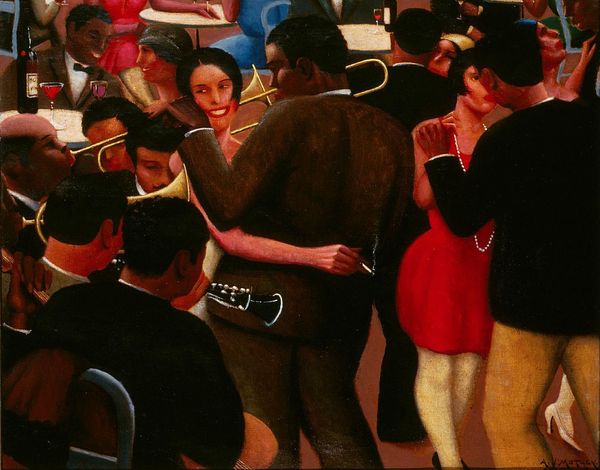
painting, oil-paint
#
portrait
#
painting
#
oil-paint
#
painted
#
figuration
#
social-realism
#
oil painting
#
history-painting
#
realism
Copyright: Modern Artists: Artvee
Editor: Here we have Norman Rockwell’s 1963 oil painting, "The Problem We All Live With.” It's such a striking image. The contrast between the little girl in her clean white dress and the graffiti and splattered tomato is incredibly powerful. What do you see in this piece, beyond the obvious? Curator: Beyond the immediate visual impact, I see a profound commentary on the deeply ingrained social injustices of the time. Rockwell, primarily known for his idyllic portrayals of American life, uses realism here to confront the brutal reality of segregation. He places Ruby Bridges, an African-American child, at the center, forcing viewers to reckon with the violence and hatred directed at her simply for seeking an education. Editor: So it’s more than just a depiction of a historical event? Curator: Precisely. It’s a deliberate act of resistance against the prevailing narrative of white innocence. Consider the racial dynamics Rockwell is exposing. The graffiti is not just random vandalism; it’s a violent expression of white supremacy. And notice how the faces of the marshals escorting Ruby are cropped out. They are symbolic of the impersonal forces upholding a discriminatory system, aren't they? Editor: That's chilling. I hadn’t thought of it that way. I was focusing on Ruby's dignity and composure. Curator: Her resilience is undoubtedly a focal point, but Rockwell also invites us to interrogate the societal structures that necessitate her bravery. What does it mean to place the burden of integration on a child? It’s a searing critique of the white community's failure to address its own racism. Editor: This really reframes how I see the painting. It is more than just one little girl going to school; it speaks volumes about power, identity, and social responsibility. Curator: Exactly. And that is how Rockwell is making an important statement against racial biases and stereotypes.
Comments
No comments
Be the first to comment and join the conversation on the ultimate creative platform.
